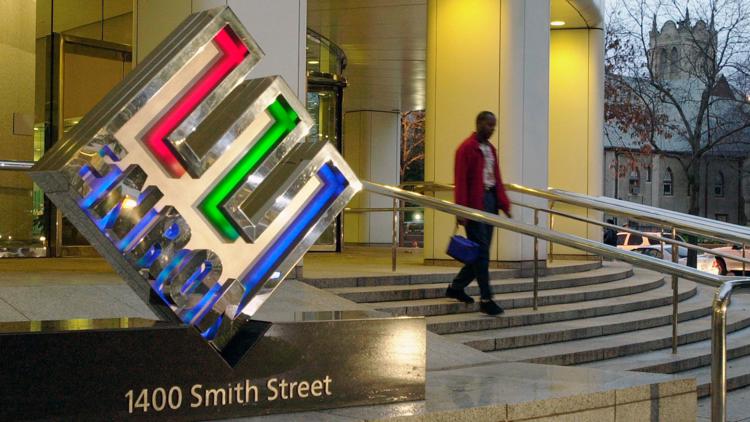HOUSTON — An elaborate parody appears to be behind an effort to resurrect Enron, the Houston-based energy company that exemplified the worst in American corporate fraud and greed after it went bankrupt in 2001.
The key player is apparently Connor Gaydos, a 28-year-old satirist, who started his own conspiracy theory called "Birds Aren't Real."
"We have nothing to hide," the supposed company social media page said on Monday; while resurrecting a company that did not even exist at the same time as Twitter, now known as X. "We recognize the importance of visible leadership in this critical moment."
But some former employees who lost everything in Enron’s collapse aren’t laughing.
“It’s a pretty sick joke and it disparages the people that did work there. And why would you want to even bring it back up again?” said former Enron employee Diana Peters, who represented workers in the company’s bankruptcy proceedings.
Here’s what to know about the history of Enron and the purported effort to bring it back.
Once the nation’s seventh-largest company, Enron filed for bankruptcy protection on Dec. 2, 2001, after years of accounting tricks could no longer hide billions of dollars in debt or make failing ventures appear profitable. The energy company's collapse put more than 5,000 people out of work and wiped out more than $2 billion in employee pensions. Its aftershocks were felt throughout the energy sector.
Twenty-four Enron executives, including former CEO Jeffrey Skilling, were convicted for their roles in the fraud. Enron founder Ken Lay’s convictions were vacated after he died of heart disease following his 2006 trial.
On Monday — the 23rd anniversary of the bankruptcy filing — a company representing itself as Enron announced in a news release it was relaunching as a “company dedicated to solving the global energy crisis.” It also posted a video on social media, advertised on at least one Houston billboard and a took out a full-page ad in the Houston Chronicle
In the minute-long video full of generic corporate jargon, the company talks about “growth” and “rebirth.” It ends with the words, “We’re back. Can we talk?”
In an email, company spokesperson Will Chabot said the new Enron was not doing any interviews yet, but "We’ll have more to share soon.”
Signs point to the comeback being a joke.
In the “terms of use and conditions of sale” on the company's website, it says “the information on the website about Enron is First Amendment protected parody, represents performance art, and is for entertainment purposes only.”
Documents filed with the U.S. Patent and Trademark Office show College Company, an Arkansas-based LLC, owns the Enron trademark. The co-founder of College Company is Connor Gaydos, who helped create a joke conspiracy theory claiming all birds are actually government surveillance drones.
Peters said she and some other former employees are upset and think the relaunch was “in poor taste.”
“If it’s a joke, it’s rude, extremely rude. And I hope that they realize it and apologize to all of the Enron employees,” Peters said.
Peters, 74, said she is still working in information technology because “I lost everything in Enron, and so my Social Security doesn’t always take care of things I need done.”
“Enron’s downfall taught us critical lessons about corporate ethics, accountability, and the consequences of unchecked ambition. Enron’s legacy was the employees in the trenches. Leave Enron buried,” she said.
But Sherron Watkins, Enron’s former vice president of corporate development and the main whistleblower who helped uncover the scandal, said she didn’t have a problem with the joke because comedy “usually helps us focus on an uncomfortable historical event that we’d rather ignore.”
“I think we use prior scandals to try to teach new generations what can go wrong with big companies,” said Watkins, who still speaks at colleges and conferences about the Enron scandal.
__
This story was corrected to fix the spelling of Ken Lay’s first name, which had been misspelled “Key.”
___
Follow Juan A. Lozano on X at https://x.com/juanlozano70



